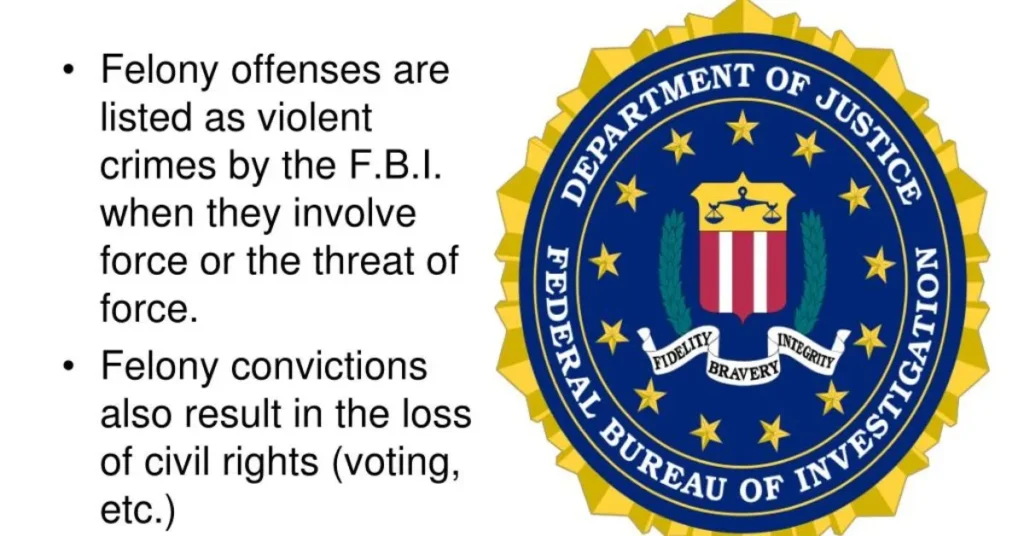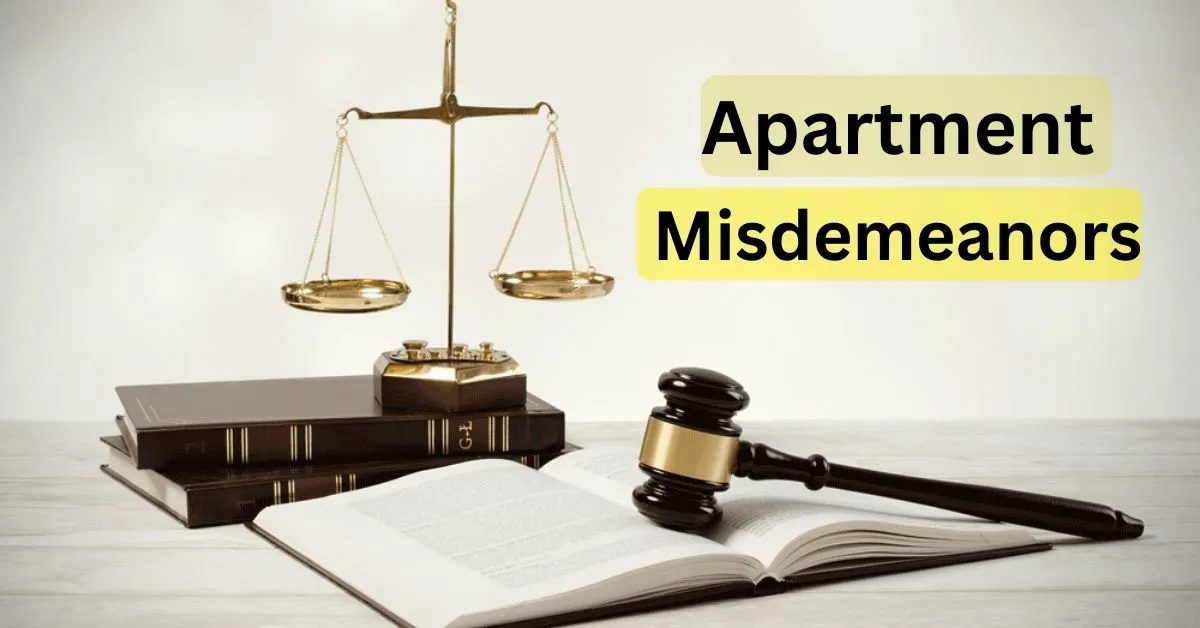Having a misdemeanor for your record can make finding housing difficult. Landlords can be hesitant to rent to a person with a criminal history. Yes, landlords have the right to deny packages based on criminal records, such as misdemeanors. It is critical to know your rights and understand how this may affect your housing search.
If you’ve been denied an apartment because of a misdemeanor, do not lose hope. You can explain your state of affairs to landlords, display evidence of rehabilitation, or seek housing with greater lenient policies. Understanding your options can help you find an area to call home.
Can an Apartment Reject You for Misdemeanors?
Landlords can reject your rental application if you have a misdemeanor. They check your criminal history and may deny you based on what they discover. Knowing this can help you be prepared when you apply for housing.
If a landlord denies you because of a misdemeanor, you continue to have alternatives. Explain your situation and show you’ve changed.
What’s Involved in a Background Check for an Apartment?
When you apply for an apartment, landlords typically run a background check. They take a look at your rental records, credit score, and criminal document. This helps them determine if you’ll be a good tenant.
Landlords also check your employment and earnings to ensure you could pay lease. They might contact your previous landlords for references. Knowing what they search for can help you prepare and increase your chances of having accepted.
Understanding Apartment Background Checks
Understanding apartment background checks is important. Landlords use these assessments to have a look at your criminal records, credit rating, and rental history. They want to ensure you’ll be a reliable tenant. Knowing what they check can help you be better prepared when you apply for an apartment.
Key Components of Background Checks
Key components of background checks include:
- Criminal History: Landlords check for past convictions or charges.
- Credit Score: They review your financial reliability and debt history.
- Rental History: Previous rental experiences and any evictions are considered.
- Employment Verification: They confirm your current job and income.
- Identity Verification: Ensuring your identity matches the provided information.
Preparing for a Background Check
Preparing for a background check is important when applying for housing. Gather all necessary documents and ensure your information is accurate. Being proactive can help you present yourself in the best light and increase your chances of success.
Related Article: How Are Inheritance Checks Mailed? Let’s Find Out!
What Types of Crimes Prevent You from Getting an Apartment?
Landlords may deny your apartment application if you have been convicted of serious crimes such as violent offenses, drug-related crimes, or sex offenses. These types of crimes can raise concerns about safety and liability for the landlord, leading them to reject your application.
It’s important to check local laws and understand your rights regarding housing discrimination based on criminal history.
Violent Crimes

Violent crimes include offenses like assault, robbery, and homicide. These crimes involve causing harm or threat of harm to another person. They are taken very seriously by law enforcement and can result in significant penalties.
Acts of violence can have serious consequences, affecting both victims and communities. Law enforcement agencies work to prevent and address these crimes to ensure public safety. Understanding the impact of violent crimes is crucial for promoting a safer society for everyone.
Drug Offenses
Drug offenses can prevent you from getting an apartment. Landlords may reject your application if you have been convicted of drug-related crimes, as they can view these offenses as a risk to other tenants and property.

If you have a drug offense on your record, you may face challenges in finding housing. It’s important to be upfront about your history and demonstrate rehabilitation efforts to landlords. Explaining the circumstances and providing references can sometimes help landlords reconsider their decision.
Sexual Offenses
- Sexual offenses can lead to denial of apartment applications due to concerns about safety and liability.
- Landlords often view these offenses as posing a risk to other tenants.
- It’s important to disclose your history and demonstrate rehabilitation efforts to landlords
Property Crimes
Property crimes, such as theft or vandalism, can affect your ability to rent an apartment. Landlords may be concerned about the safety of their property and other tenants. Being transparent about your past and showing that you have changed can help you in your housing search.
Financial Crimes
Financial crimes, such as fraud or embezzlement, can impact your ability to secure an apartment. Landlords may worry about your ability to meet rent payments or concerns about potential dishonesty. Being transparent about your past and demonstrating responsible financial behaviour can help mitigate these concerns.
Repeat Offenses
Repeat offenses can significantly impact your ability to rent an apartment. Landlords may be reluctant to approve your application if you have multiple offenses on your record. It raises concerns about future behaviour and property safety. It’s crucial to address any repeat offenses honestly and explain steps taken to prevent reoccurrence.
Felony Convictions

Felony convictions can make it difficult to rent an apartment. Landlords may reject your application due to concerns about safety and liability. You can improve your chances by explaining your situation and showing you’ve rehabilitated
Recent Criminal Activity
Recent criminal activity can affect your ability to rent an apartment. Landlords may deny your application if you have been involved in criminal activities recently, as they may see it as a risk to the property and other tenants. It’s important to be transparent about any recent criminal history and show that you have made positive changes.
Got Landlord/Tenant Issues?
Got landlord/tenant issues? It’s important to communicate clearly with your landlord or tenant to resolve problems quickly. Document any issues and keep records of your communication.
If problems persist, consider seeking legal advice or mediation services to help find a solution. Understanding your rights and responsibilities can make resolving issues easier.
How Landlords Might Evaluate Applicants with Misdemeanors?
Landlords evaluate applicants with misdemeanors based on several factors:
- Nature of the offense: They consider what the misdemeanor was for.
- Recency of the offense: How long ago the misdemeanor occurred.
- Pattern of behavior: Whether there is a history of criminal activity.
They also look at:
- Rental history: Your past behavior as a tenant.
- References: Recommendations from previous landlords or employers.
- Rehabilitation efforts: Steps you’ve taken to improve and prevent future issues.
Can You Get An Apartment With A Misdemeanor? How To Find Out
Getting an apartment with a misdemeanor on your record is viable. Begin by using contacting the owner or property manager without delay to inquire about their guidelines regarding misdemeanors. Be sincere about your state of affairs and ask if they will consider your software despite the misdemeanor.
Many landlords may be inclined to overlook minor misdemeanors, in particular if they came about a long time ago or were non-violent. You can also offer to provide references or documentation showing your responsible behavior since the offense. Being proactive and transparent about your misdemeanor can improve your chances of getting approved for the apartment you want.
Related Article: Money6x Real Estate: The Ultimate Guide
10 best Tips for Renting with a Misdemeanor
When renting with a misdemeanor, Use these additional tips to enhance your chances:
- Be Honest: Disclose your misdemeanor upfront to the landlord or property manager.
- Explain the Circumstances: Provide context and explain what happened.
- Show Rehabilitation Efforts: Demonstrate that you’ve taken steps to improve since the misdemeanor.
- Provide References: Offer references from previous landlords or employers.
- Offer to Pay More Upfront: Consider offering a higher security deposit or advance rent payments.
- Consider a Co-Signer: If possible, get a co-signer with a clean record to support your application.
- Look for Private Rentals: Private landlords should be more flexible than large property management companies.
- Check Local Laws: Understand housing discrimination laws in your area regarding criminal records.
- Be Patient: It can take time to find a landlord willing to rent to you, so be persistent.
- Document Everything: Keep records of all communications and agreements during the application process.
Frequently Asked Questions
Can an apartment reject you for misdemeanors?
Yes, landlords have the right to reject your application based on misdemeanor convictions.
What types of misdemeanors can lead to rejection?
Landlords can reject applicants with misdemeanors related to violence, drugs, or theft, depending on their policies.
Are there any protections against discrimination?
Yes, some states have laws protecting individuals from discrimination based on criminal history. Check local rules also for protection against discrimination.
What can I do if I’ve been rejected due to a misdemeanor?
You can explain the circumstances to the landlord, provide evidence of rehabilitation, or seek housing with more lenient policies.
Should I disclose my misdemeanor on my application?
It’s usually best to be honest about your misdemeanor to avoid potential issues later.
Can I appeal a rejection based on a misdemeanor?
You can sometimes appeal by providing additional information or seeking legal advice depending on the situation.
Final Words
Landlords can reject apartment programs because of misdemeanors, specifically those involving violence, tablets, or theft. However, state laws may provide protections in opposition to discrimination based totally on criminal history, so it is important to check nearby rules.
While misdemeanors can affect your housing prospects, expertise your rights and options is important. Being transparent about your misdemeanor and exploring specific avenues can help navigate the apartment process greater effectively, making sure you discover suitable housing despite past legal problems.

Paul Mitchell, our website’s author, leverages 6 years of business expertise to provide insightful content. His wealth of experience enriches our platform, offering valuable insights for our readers.











